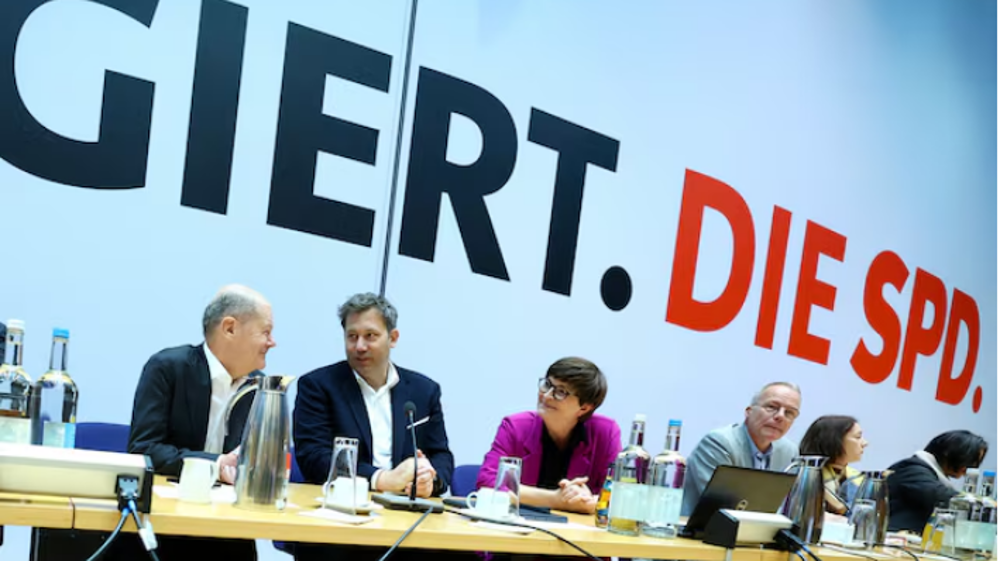1000s of Germans hold rallies against Europe-US trade deal
Thousands of people in Germany have staged protest rallies against a controversial transatlantic trade deal between the European Union and the United States.
The Saturday rallies were held in several cities, including the capital Berlin, Frankfurt, Hamburg and Stuttgart, against the Transatlantic Trade and Investment Partnership (TTIP) deal, a free trade agreement currently under negotiation between the EU and the US.

Anti-TTIP rallies were also held in many other European cities, including Brussels, Madrid, Helsinki, Warsaw, and Prague, on Saturday.
Opposition to the free trade agreement has recently grown in Germany. A new poll by YouGov indicated that 43 percent of people think the pact would be bad for their country, while 30 percent see it as good.
In another sign of strong resistance to the deal, one million out of the 1.7 million signatures collected in Europe against the TTIP came from Germany.
Under EU laws, a petition of more than a million signatures can force the European Commission to review the deal and hold a hearing in the European Parliament. However, the European Commission has repeatedly tried to block the review from taking place.
If passed, the deal would allow corporations to sue governments for policies they consider detrimental to their business interests. Its opponents say it would allow big businesses to overrule measures decided upon by democratically elected administrations.
"There is a very big risk: TTIP will restrict our democratic rights. In future, large corporations will have an even greater influence on the legislative process," said Thilo Bode of consumer rights NGO foodwatch.
On the other hand, those supporting the deal say firms on both sides of the Atlantic will benefit from a reduction in regulatory obstacles and be able to have access to each other’s markets with ease.
American and European negotiators are scheduled to begin their ninth round of talks over the agreement in New York on Monday and continue the negotiations until Friday.
MSM/NT
Israeli war criminals 'not welcome', US city says after ICC ruling
US vetoing of Gaza ceasefire resolution ‘disgraceful’: Iran’s UN envoy
VIDEO | IAEA adopts anti-Iran resolution tabled by E3
VIDEO | Iran's president urges Pope to help end Israel's onslaught in Gaza
Iran's senior legal official: ICC arrest warrant for Netanyahu ‘great victory'
Nov. 21: ‘Axis of Resistance’ operations against Israeli occupation
VIDEO | Israeli forces storm West Bank’s Jenin again, target civilians
Iran activates advanced centrifuges after IAEA's 'unjust' resolution










 This makes it easy to access the Press TV website
This makes it easy to access the Press TV website